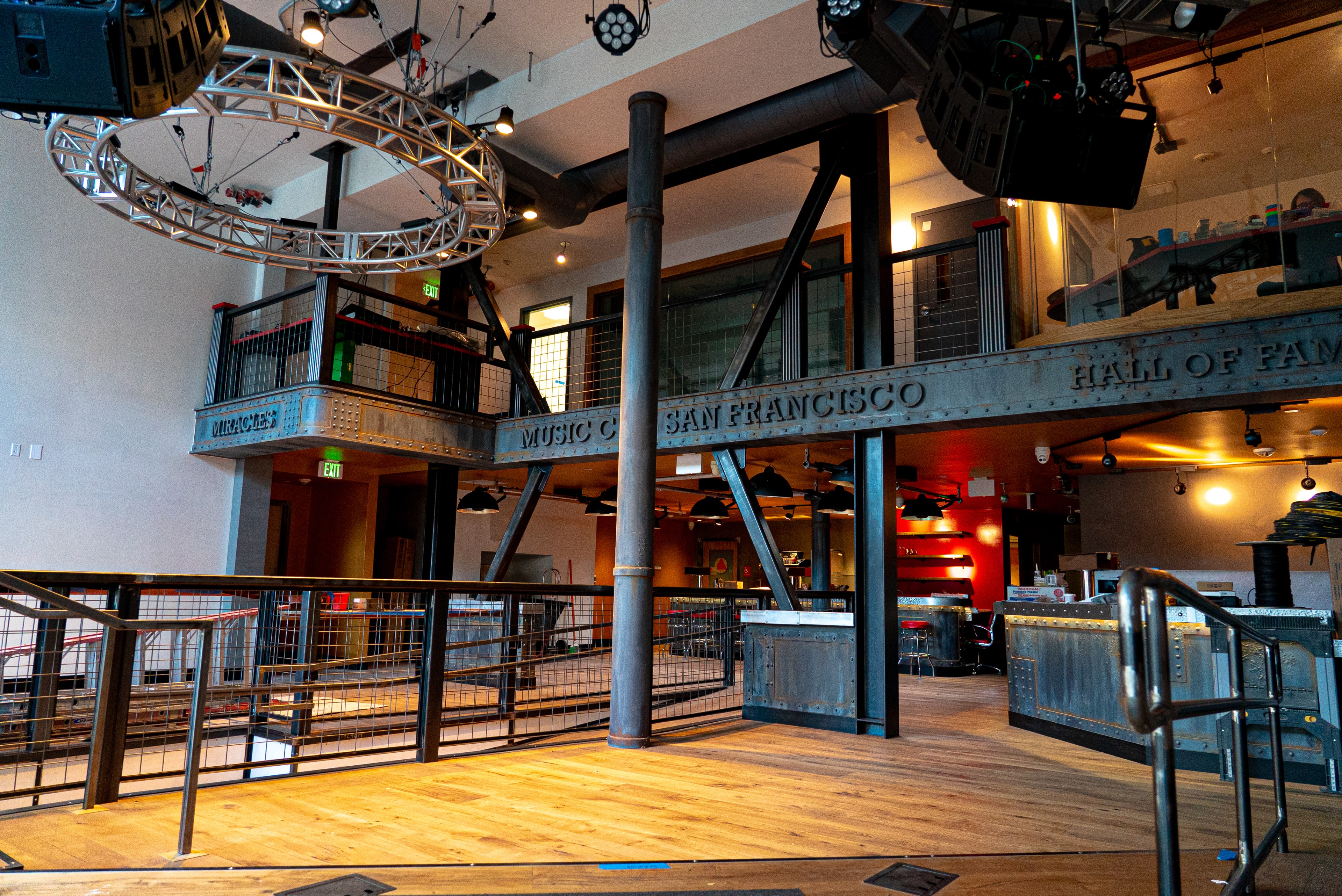Music City—a campus-like complex in San Francisco’s Lower Nob Hill with a hostel, hotel, rehearsal rooms and performance spaces—stands on the brink of foreclosure, not even one month after the launch of a major expansion.
Rudy Colombini, Music City’s founder, is now calling upon the community and potential equity partners to help save what he calls an “irreplaceable cultural haven.”
“This is not just a building, but a home for the dreams and aspirations of countless artists,” he said. In the meantime, the organization remains open for business with limited food and drink service.
The pricey $20 million transformation of Music City into a 29,000-square-foot complex has contributed to the organization’s precarious position, given the collapse of commercial real estate values. At a time when many businesses were simply trying to stay alive through the pandemic, Music City embarked on an ambitious expansion.
In addition to the declining real estate market in San Francisco, Colombini cites multiple additional reasons for his organization’s financial straits: negative media narratives about the city, rising interest rates and the lasting impact of the pandemic.
All of these factors have conspired to push Music City to default on its $10 million construction loan, unable to secure additional financing despite going out to over 100 financial institutions, Colombini said.
“We got a very anti-San Francisco vibe,” said Brian Davy, Music City Hotel’s general manager, about reaching out to lenders.
Davy said Music City’s business model is built upon numerous symbiotic revenue streams, including hotel and hostel income, rehearsal space fees and food and beverage sales. Once Music City obtains its entertainment license—expected this month—there should be income from ticket sales. In March, the organization plans to begin private event rentals and, in the fall, intends to start up education programs.
But there is now a question of whether Music City will make it that far. Music City is now three months behind on its $76,000 monthly mortgage payments (essentially loan interest) on its newly renovated building, which Colombini said had been assessed at $20 million. There are multiple liens on the property—both for nearly $60,000—related to unpaid construction costs, according to the site PropertyShark.
Colombini’s optimistic bet on San Francisco’s cultural scene had the potential to reverse some of the narratives about the death of the city’s urban core, offering a buzzy draw for touring musicians and young talent.
“The way out of our little conundrum is through arts and culture and entertainment,” said Board of Supervisors President Aaron Peskin at Music City’s Second Songwriters Festival in October. “It is going to be a beacon for the rebirth of San Francisco.”
“It’s a shame,” Peskin said when reached for comment about Music City’s present situation. “But there’s not much we can do.”
Despite these challenges, Colombini is hopeful that a path forward can be found. Representatives of several large corporations have toured the building and spoken with Colombini about sponsoring portions of it, he said, though he would not name any of them.
Music City opened its renovated facility and rehearsal spaces on Jan. 5 and is now offering a limited food and drink menu, with the full menu along with live performances slated to begin in mid-February.
Colombini said he purchased 1353 Bush St. for approximately $4 million in 1988, and Music City began in 2005 with its Plug N Play rehearsal spaces opening alongside the preexisting hotel and hostel in the five-story Italianate building. The hotel was rebranded as Music City in 2017, and the Music Hall of Fame opened in 2021, with renovations to the rehearsal and venue spaces completed this year.
“The mission of Music City San Francisco remains unchanged,” Colombini said. “It aims to be a thriving ecosystem and star-making factory.”
